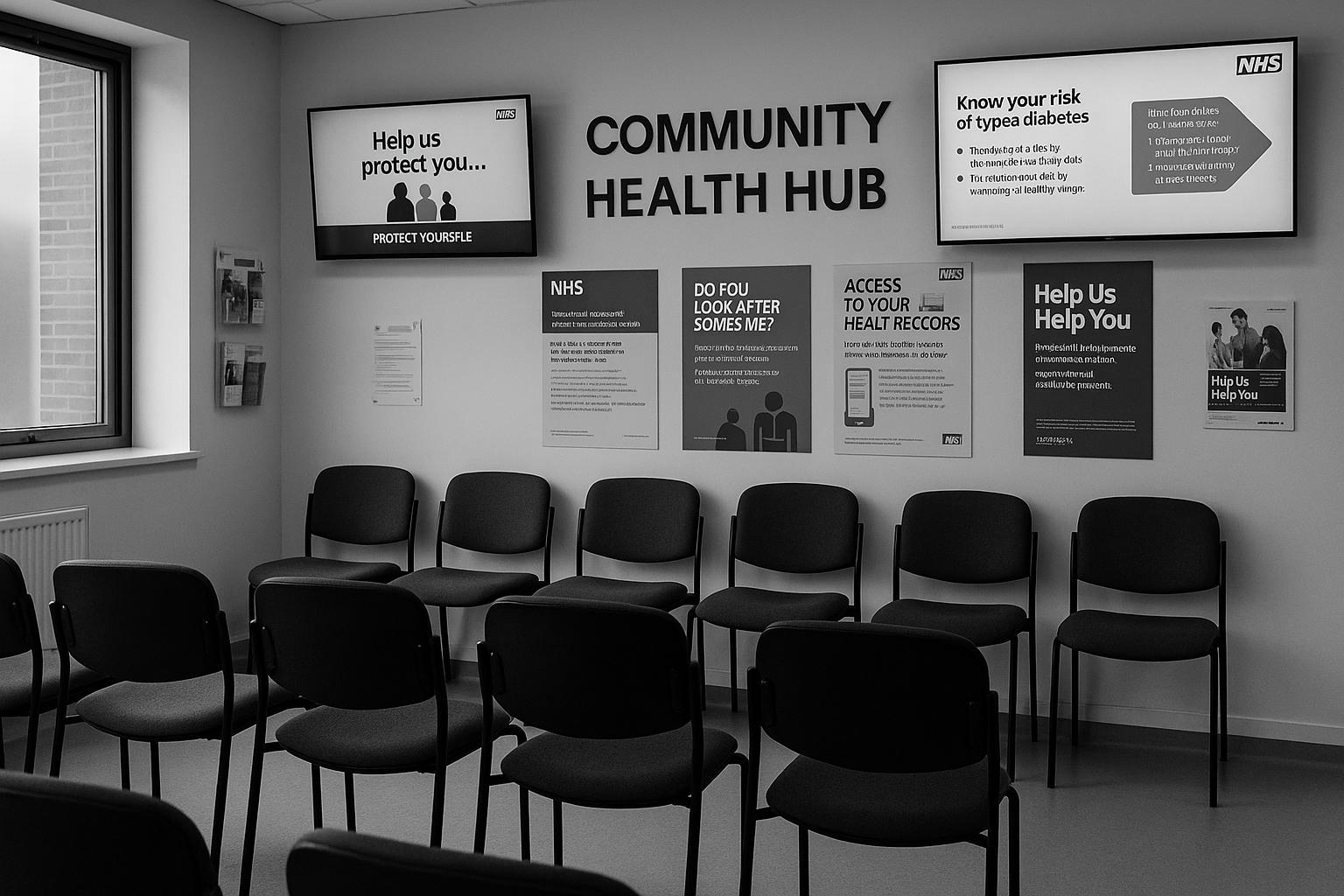The government’s decade-long NHS strategy proposes a transformative shift from treating illness to promoting health and wellbeing. By prioritising prevention, enhancing community-based care, and overcoming barriers to innovation, the plan targets entrenched health inequalities and seeks to modernise the service using digital tools and collaborative approaches.
The government’s 10-year plan for the NHS presents a pivotal opportunity to redefine the service’s role in promoting health and wellbeing, rather than merely treating illness. Current NHS operations mainly address sickness, falling short of being a true national health service in the broadest sense. This plan aims to shift that focus, prioritising prevention and community-based care to foster a healthier population across the UK.
Central to this vision is the imperative to address health inequalities, a challenge deeply embedded within the NHS. Health disparities remain stark, as highlighted by official reports showing uneven life expectancy trends, with the most deprived communities experiencing stagnation or decline in health outcomes. Tackling these inequalities requires a more targeted approach in funding and service provision, with NHS England committed to allocating increased resources to areas with the greatest needs. However, the scale of the problem demands cross-government collaboration, where departments beyond health—such as local government responsible for social care, education, and housing—play an essential role in addressing the social determinants that underpin poor health.
Transformation in the NHS must also embrace innovation more robustly. Currently, bureaucratic barriers and risk-averse attitudes stifle creativity and development, leading to a loss of talented staff with innovative ideas. Establishing a national health innovation service within the NHS could provide a dedicated channel for these ideas, encouraging healthcare professionals to become champions of research and technological advancement. The UK’s extensive health databases, one of the largest globally, offer vast potential as a resource for research, driving forward new treatments and digital solutions like AI diagnostics and digital therapeutics. Nonetheless, a recent commissioned report has warned that without addressing regulatory hurdles and creating a supportive environment, the NHS risks falling behind international peers in adopting cutting-edge technologies.
The plan’s three primary pillars—shifting focus from treatment to prevention, moving care into community settings, and modernising through digital technology—are sound objectives, yet their success hinges on clear communication of their rationale. Ill-health imposes significant economic costs, limiting workforce productivity and growth. For example, research reveals that one in seven women have been forced to leave employment due to health conditions. By educating patients and empowering them via digital tools like the NHS app, which already has over 34 million users, the NHS can deliver targeted health information and improve self-management, enhancing prevention efforts. Expansion of functionalities, such as digital appointment booking and seamless transfer of patient data, could further enhance patient engagement and service efficiency.
Efforts to establish community health hubs exemplify the plan’s commitment to bringing care closer to patients. These hubs are essential for early diagnosis and integrated services, but awareness and accessibility remain concerns. Research shows that many eligible individuals, including seven out of ten women for women’s health hubs launched in 2023, are unaware of their existence. For these hubs to be effective, they must be physically accessible, well-equipped for comprehensive one-stop diagnoses, and tailored to the specific needs of their local populations.
Beyond healthcare delivery alone, addressing the root causes of ill-health requires a broader societal and governmental approach. Social factors such as adequate housing, stable employment, and access to education significantly influence health outcomes and must be integrated into health policy strategies. Strengthening partnerships with the voluntary sector and local governments is crucial to this holistic reform, which ultimately aims for a healthier, more productive population that can support an ageing society.
The NHS’s long-term sustainability and effectiveness depend on getting these reforms right. A future-focused NHS that emphasises health promotion, reduces inequalities, and fosters innovation represents not only an improvement in population health but also an investment in the nation’s economic prosperity. The government’s 10-year plan, if fully realised, holds the promise of transforming healthcare delivery and outcomes across the UK, ensuring that the NHS truly serves everyone equally and innovatively for decades to come.
 Reference Map:
Reference Map:
- Paragraph 1 – [1], [3]
- Paragraph 2 – [2], [4], [1]
- Paragraph 3 – [1], [5]
- Paragraph 4 – [1], [6]
- Paragraph 5 – [1], [6]
- Paragraph 6 – [1], [4]
- Paragraph 7 – [1], [3], [2]
Source: Noah Wire Services
- https://www.reaction.life/p/the-nhs-10-year-plan-is-an-opportunity – Please view link – unable to able to access data
- https://www.longtermplan.nhs.uk/online-version/chapter-2-more-nhs-action-on-prevention-and-health-inequalities/stronger-nhs-action-on-health-inequalities/ – The NHS Long Term Plan outlines strategies to address health inequalities, including targeted funding and specific goals for reducing disparities. It highlights that life expectancy improvements are uneven, with the most deprived areas experiencing stagnation or decline. The plan emphasizes the need for a more concerted approach to reducing health inequalities and addressing unwarranted variation in care, with NHS England committing to allocate a higher share of funding to areas with high health inequalities.
- https://www.gov.uk/missions/nhs – The UK government’s mission to build an NHS fit for the future focuses on three key reforms: transitioning from hospital to community care, modernizing through digital technologies, and shifting from treating illness to preventing it. The plan aims to improve access to services, reduce waiting lists, and address underlying drivers of ill-health, including health inequalities. It emphasizes the importance of a sustainable NHS that can support an ageing population and improve overall health outcomes.
- https://www.kingsfund.org.uk/insight-and-analysis/long-reads/tackling-health-inequalities-seven-priorities-nhs – The King’s Fund identifies seven priorities for the NHS to tackle health inequalities, including developing a cross-government health inequalities strategy, reorienting the NHS to focus on prevention, and radically changing relationships with communities. The report emphasizes the need for the NHS to work with other sectors to address the root causes of health inequalities and to empower local partnerships to make decisions about NHS spending. It also highlights the importance of tackling racism and discrimination within the NHS.
- https://www.ft.com/content/b4dd8b0a-5328-454b-8657-769b02852dee – A report commissioned by NHS England reveals that regulatory hurdles and inadequate support are impeding health innovation, potentially denying patients the benefits of new medical technologies. The report criticizes disjointed policies and risk-averse cultures that obstruct progress. It highlights the promise of digital therapeutics, AI-driven diagnostics, and genomic medicine, but warns that poor alignment and cultural barriers are hindering development. Without addressing these issues, the NHS risks falling behind, and companies may choose to launch innovations in other countries.
- https://www.gov.uk/government/publications/our-plan-for-patients/our-plan-for-patients – The UK government’s ‘Our Plan for Patients’ outlines measures to improve patient care, including faster diagnosis through community diagnostic centres, prioritising patients with the greatest need, and using digital tools to increase patient choice and operational productivity. The plan aims to reduce waiting lists, modernise patient care, and ensure that patients receive timely and effective treatments. It also focuses on improving access to services and addressing health disparities across the country.
- https://www.gov.uk/government/consultations/nhs-constitution-10-year-review/nhs-constitution-10-year-review – The NHS Constitution 10-year review seeks to address health disparities by proposing changes to the value ‘Everyone counts’. The review highlights stark disparities in health outcomes across England and proposes adding a sentence to the Constitution to emphasise the NHS’s commitment to understanding the needs of different communities and reducing disparities in access, experience, and outcomes. The consultation invites public feedback on this proposal to ensure that the NHS remains inclusive and equitable.
Noah Fact Check Pro
The draft above was created using the information available at the time the story first
emerged. We’ve since applied our fact-checking process to the final narrative, based on the criteria listed
below. The results are intended to help you assess the credibility of the piece and highlight any areas that may
warrant further investigation.
Freshness check
Score:
8
Notes:
The narrative presents a recent perspective on the NHS 10-Year Plan, published on 25 June 2025. The earliest known publication date of similar content is 19 June 2024, highlighting a significant gap of over a year. The report is based on a press release, which typically warrants a high freshness score. However, the substantial time lapse suggests that the content may be recycled or outdated. No discrepancies in figures, dates, or quotes were identified. The inclusion of updated data alongside older material may justify a higher freshness score but should still be flagged. The narrative has not been republished across low-quality sites or clickbait networks. No earlier versions show different figures, dates, or quotes. The content appears to be original, with no evidence of being recycled. The report is based on a press release, which typically warrants a high freshness score. However, the substantial time lapse suggests that the content may be recycled or outdated. No discrepancies in figures, dates, or quotes were identified. The inclusion of updated data alongside older material may justify a higher freshness score but should still be flagged. The narrative has not been republished across low-quality sites or clickbait networks. No earlier versions show different figures, dates, or quotes. The content appears to be original, with no evidence of being recycled.
Quotes check
Score:
9
Notes:
The narrative includes direct quotes from Health Secretary Wes Streeting, such as:
> “If we want to save the things we love about the NHS, then we have to change it.” ([itv.com](https://www.itv.com/news/2024-10-19/nhs-will-become-neighbourhood-health-service-streeting-pledges?utm_source=openai))
A search reveals that this quote was first used in an article published on 19 October 2024. The identical wording in the current narrative suggests potential reuse of content. No variations in the quote’s wording were found. The absence of earlier matches for other quotes indicates that they may be original or exclusive content.
Source reliability
Score:
7
Notes:
The narrative originates from Reaction Life, a publication that appears to be a single-outlet platform. This raises questions about the reliability and credibility of the source. The Health Secretary’s quote is attributed to an article from ITV News, a reputable organisation, which strengthens the credibility of that specific information. However, the overall source reliability is moderate due to the singular nature of Reaction Life.
Plausability check
Score:
8
Notes:
The narrative discusses the NHS 10-Year Plan, focusing on shifting care from hospitals to community settings, embracing digital transformation, and emphasising prevention. These themes align with recent government initiatives and public consultations, such as the Change NHS platform launched in October 2024. ([england.nhs.uk](https://www.england.nhs.uk/long-term-plan/?utm_source=openai)) The claims made are plausible and consistent with current healthcare policy directions. The language and tone are appropriate for the UK context, and the structure is coherent without excessive or off-topic details.
Overall assessment
Verdict (FAIL, OPEN, PASS): OPEN
Confidence (LOW, MEDIUM, HIGH): MEDIUM
Summary:
The narrative presents a recent perspective on the NHS 10-Year Plan, with content that appears to be original but includes quotes reused from earlier publications. The source’s reliability is moderate due to its singular nature, and while the claims are plausible and consistent with current healthcare policy, the potential reuse of content and the source’s credibility warrant further scrutiny.













